When Ed Carr founded House of Arras wines in 1995, it was with a single-minded goal of making globally-recognised sparkling wine of the highest caliber using Tasmanian ingredients. Now, almost thirty years later, Carr has been named the Winemaker of the Year at the International Wine Competition (IWC) for a wine made entirely with Tasmanian fruit.
It’s a prestigious title that has only been taken by a winemaker outside of the Champagne province in France once before, and one that no Australian has ever held.
“It’s still a bit of a buzz, to be honest, and I’m still pinching myself,” Carr tells me. “I’m the one who goes up and collects (the award), but I think that it reflects so much work from a whole group of people: right the way through, from the vineyard to the final bottle on the shelf.”
Carr is being humble, but the win is no fluke. House of Arras has been on a journey for perfection for decades, utilising traditional winemaking methods with fruit of the highest grade. Not only that, but sourcing its fruit purely from Tasmania has given Arras a different flavour profile than its competition, helping the brand stand out in a competitive market.
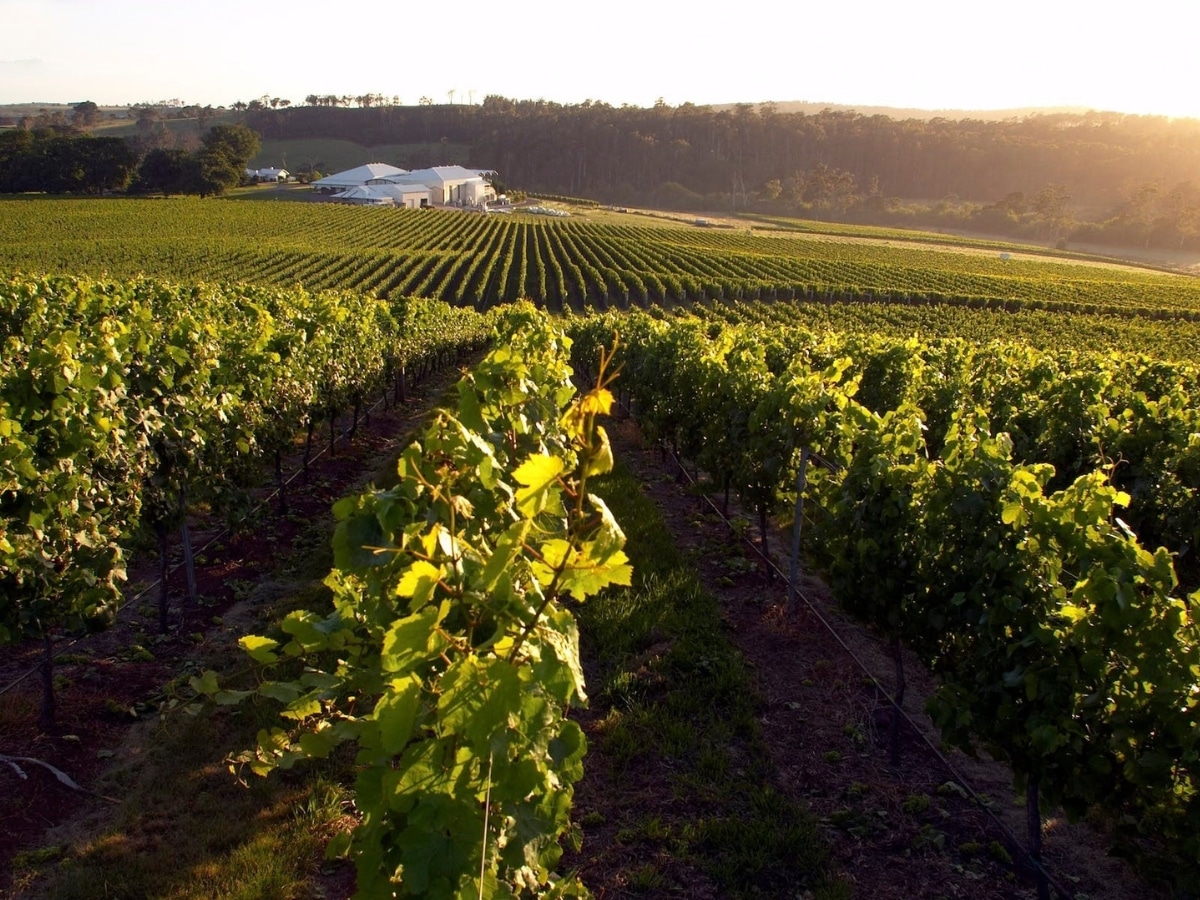
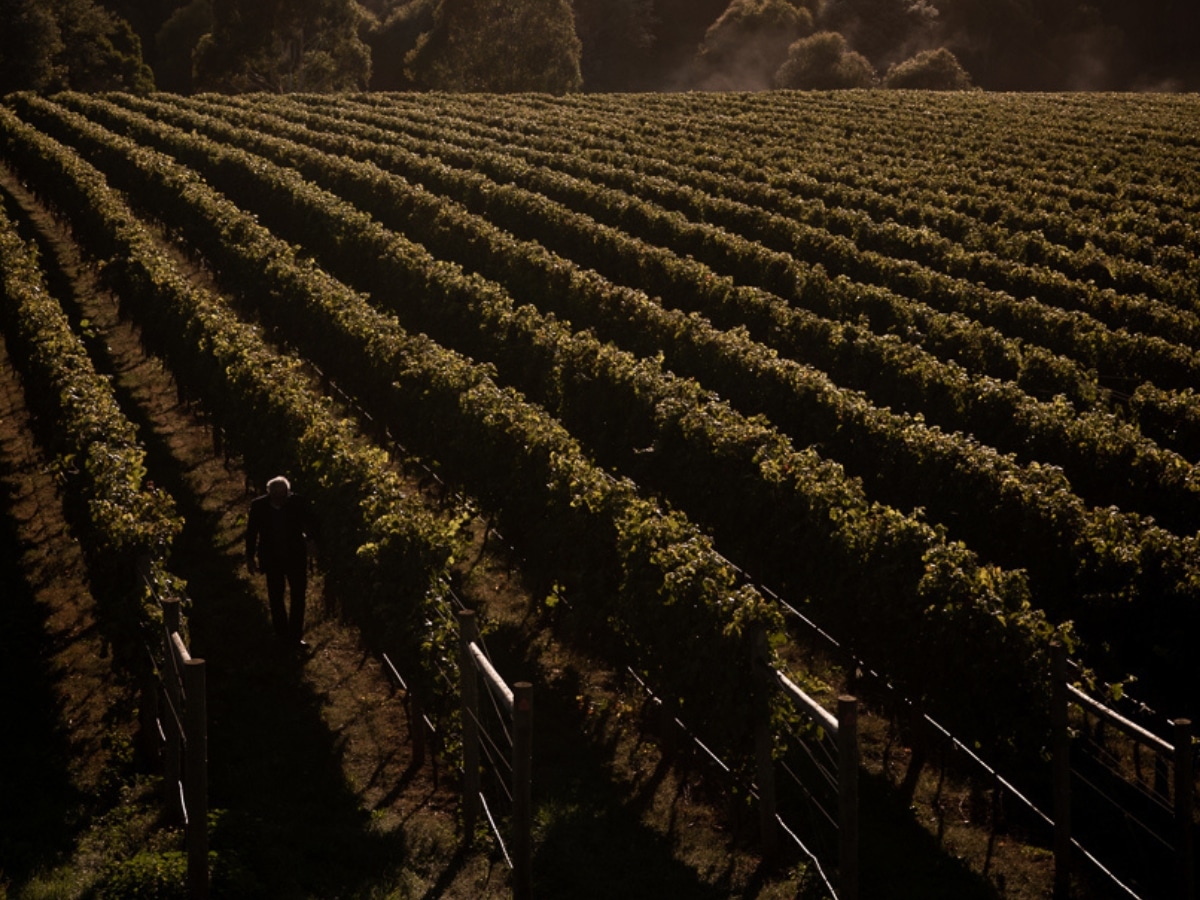
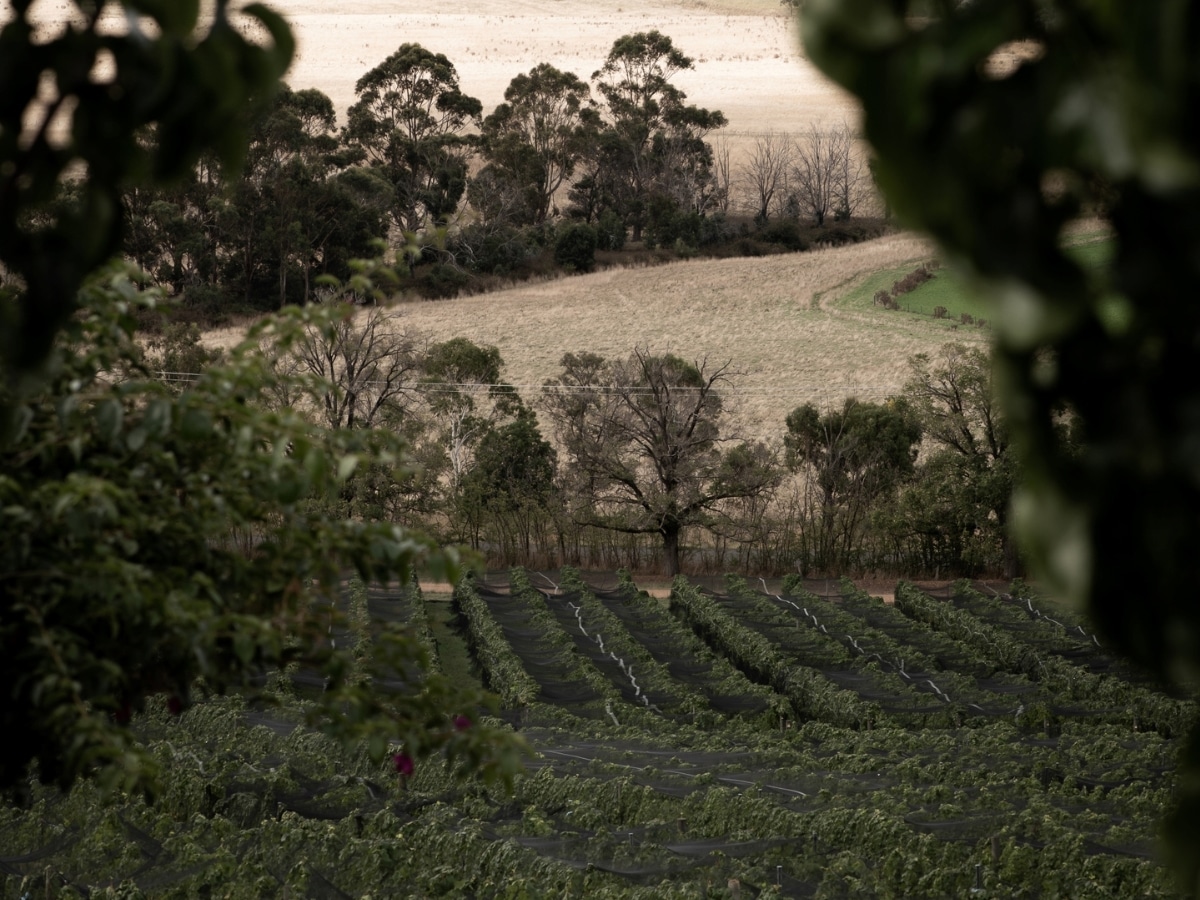
Most winemakers view Tasmania as being too cold to grow anything of value. But Carr disagrees. In his mind, Tasmania is key to Arras’ success, and the reason the House’s wine ages so well. The cold Antarctic winds, coupled with bright and sunny skies, allow the grapes to ripen slowly and produce more vivid flavours.
In fact, when the Arras team made their first drop in 1995, which was released in ’99 as a four-year vintage, they didn’t really know how well it would mature. Turns out Tasmanian grapes mature very well, and Carr is looking forward to delivering more ‘museum’ releases (wines that are matured for at least 10 years before being sold) as the brand keeps growing.
But it hasn’t always been easy.
“We’ve built a philosophy of winemaking based on quality, and we’ve ridden peaks and troughs in getting to where we are now,” Carr says.
“What we do is certainly not cheap – it’s an expensive process to make wine of this quality.
“But I believe that it’s that belief in quality that will shine through. It’s always been about attention to detail – there’s no magic in it, it’s really about applying those science and production principles over and over again to make sure that you’re maximising the quality of the wine you get from the quality fruit.”
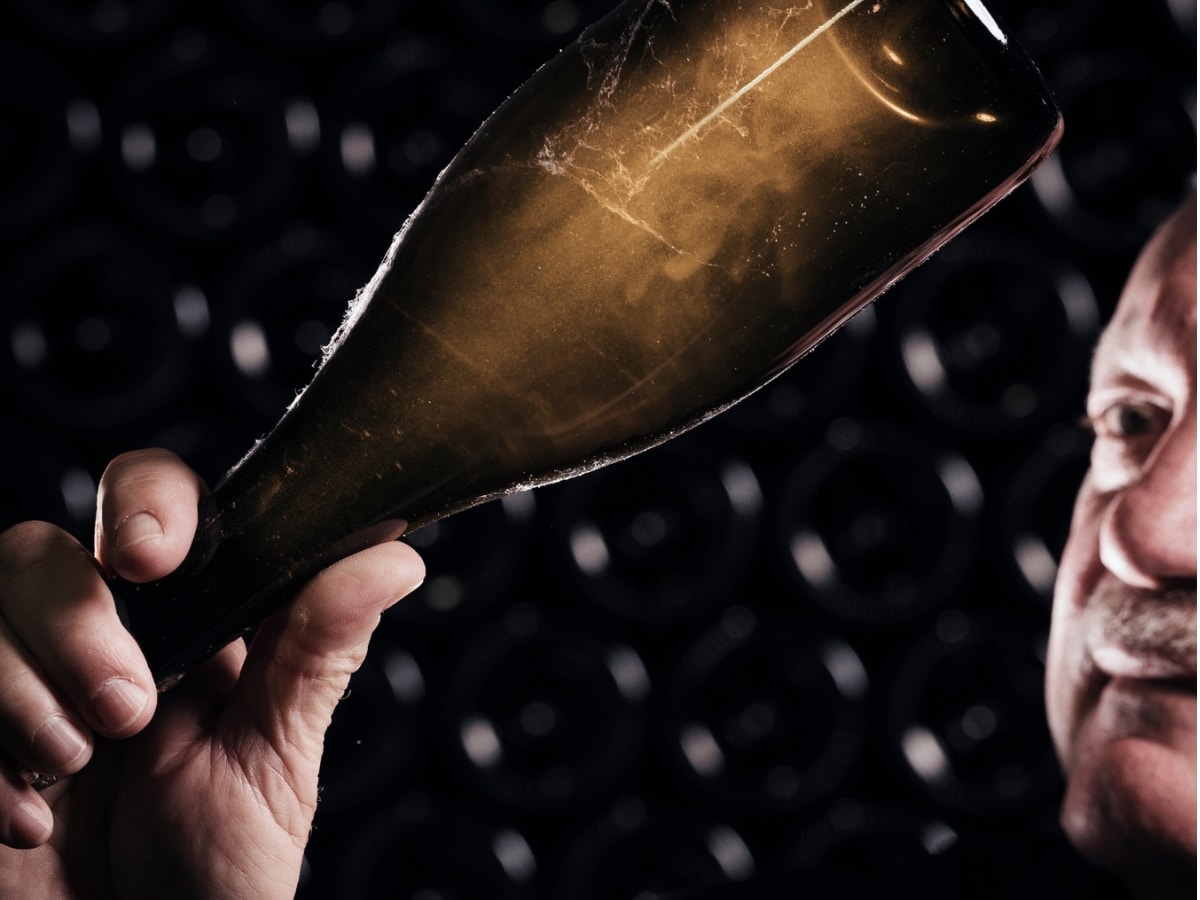
The Science of Sparkling
When Carr calls it a scientific process, he isn’t joking. Before he ever made wine, Carr was a licensed microbiologist and worked in the dairy industry.
“I went to University and got a degree in chemistry and microbiology, mainly focused on food. It opened up doors to most food and beverage processing, which could have been beer, wine, or dog and cat food,” Carr says. “I had it in my mind that I’d stay in the chemistry and microbiology lab management field.”
But that’s not what happened. His big break came when he joined a wine company and, after a batch went bad, he was tasked with using his knowledge as a scientist to ‘fix’ the fermentation. He did, eventually, and became progressively more involved in the winemaking process.
Despite trying his hand at many types of wine, Carr always came back to sparkling, and it’s become the backbone of his entire career. While working for Hardys Wines, which was eventually purchased by Accolade, Carr was tasked with making the best sparkling wine possible.
He already knew how it could be done, focusing on quality over quantity, and so House of Arras was born. What followed, though, was a journey throughout Australia to find the best possible grapes for the brand’s inaugural drop.
Knowing that cold weather fruit would suit sparkling best, given its similarity to the way champagne is traditionally made, Carr tried as many Australian varieties as possible to find the taste he wanted to bet the brand on.
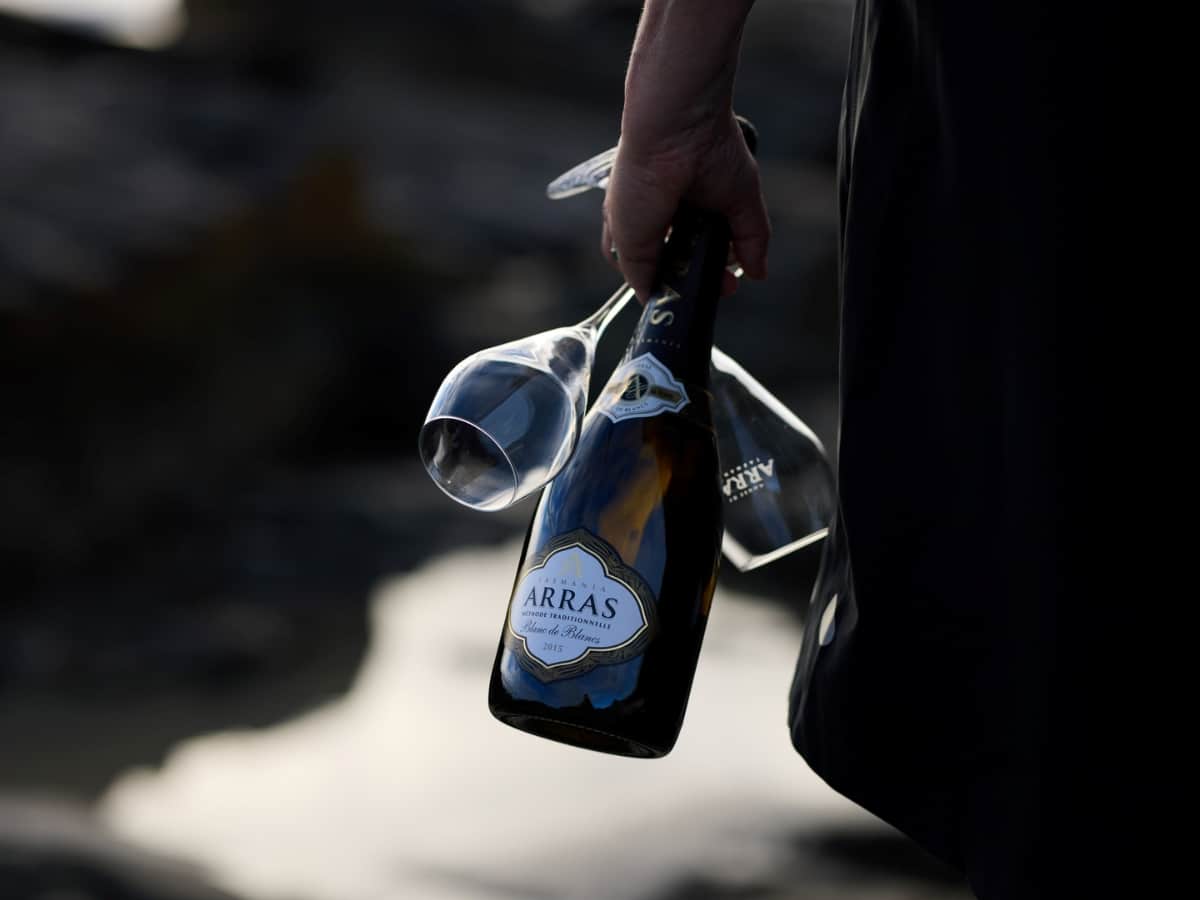
“When we got our first fruit from Tasmania in ’95 and made wine out of it there was a lightbulb moment for us,” he says.
“We felt we had discovered the right fruit to make the style that we wanted to.”
For the first few years Arras made wines by blending Tasmanian grapes with those from the Yarra Valley, but ever since ’98 all of Arras’ wines have been made with grapes purely sourced from various regions of Tasmania. However, as much as the ingredients had to be right, Arras has also employed a very old-school approach to its actual winemaking: putting a focus on quality above everything else. The results speak for themselves.
“We always had the hope, the vision, that Arras would be a global quality wine, but still represent Tasmania and our house style. I think awards like (those from the IWC) fully endorse that approach,” he says.
“It’s proof that wines from Tasmania can be made to that global quality.”
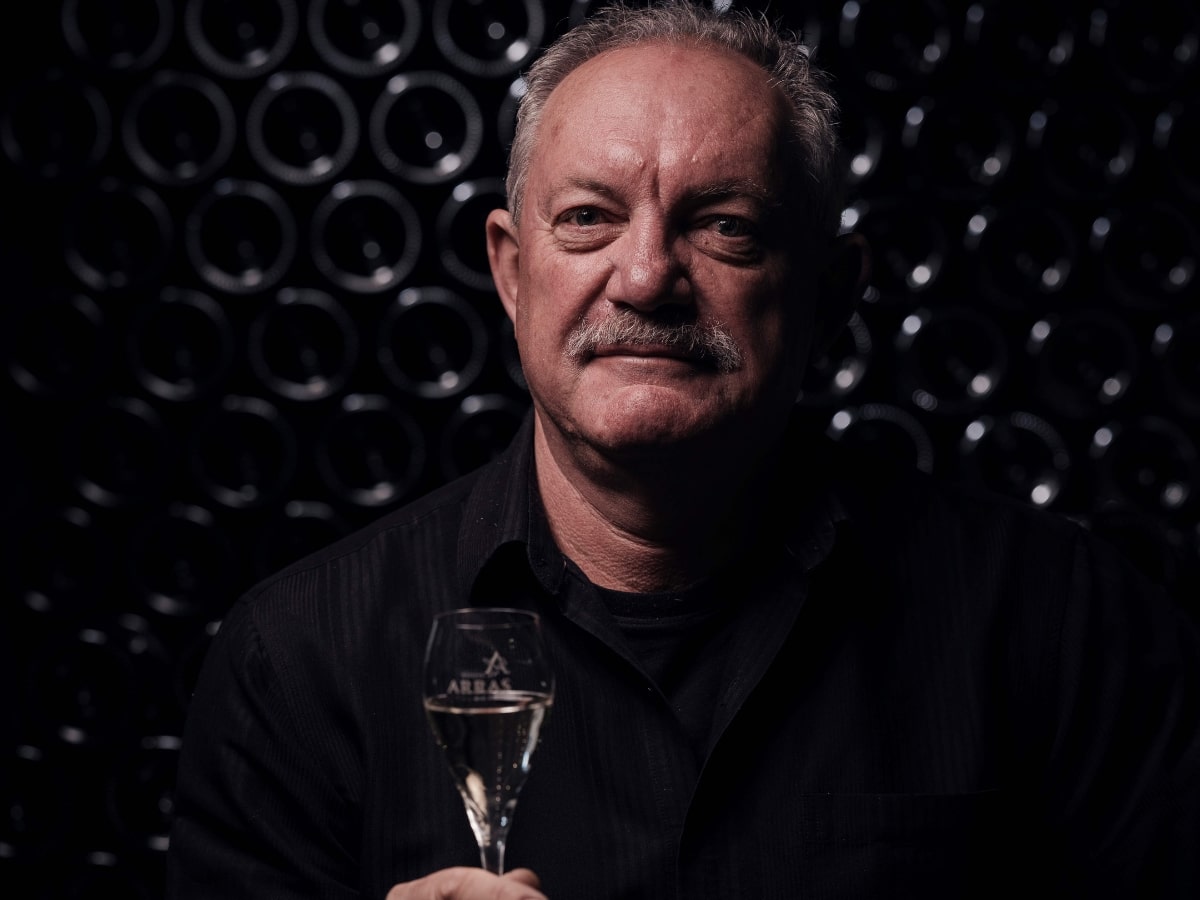
Going Global
Though House of Arras is very much an Australian brand making Australian wine out of Australian grapes, the plan has always been for it to take on the world.
And with the multitude of awards the team took home from IWC 2024, Carr noted it’s time to scale the business up.
“The brand has been (growing) for a very long period. We’ve been getting good scores at wine shows, particularly internationally, so we’ve always been on the cusp of winning one of these big awards,” he says. “I wish I knew (what’s next). The goal post is to keep doing what we’re doing and keep refining it: there’s nothing broken, so there’s nothing to fix.”
Beyond refining Arras’ series of sparkling, there are a few international opportunities that popped up: namely, the drop in volume of champagne being produced, and the cooling trade relationship with China.
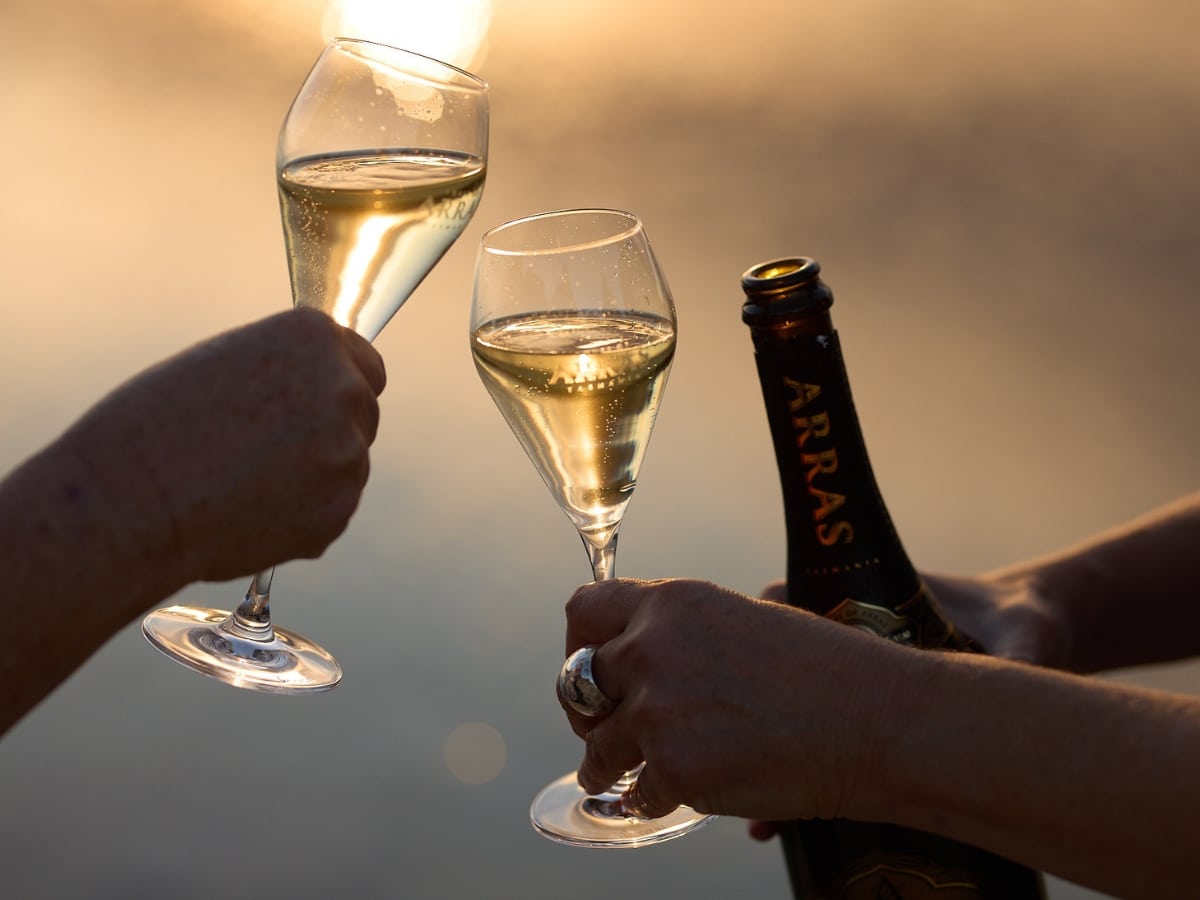
For champagne, often thought of as the premier white wine, the amount produced each year is fixed by regulation. This caps the amount of champagne in the market at any one moment, which opens the door to challenger wines to pick up some of that slack.
“There’s a real opportunity for premium sparkling wines from other parts of the globe to fill that demand,” Carr said.
Additionally, as relations between Australia and China have thawed, and the targeted trade tariffs brought down by the Chinese government during the pandemic vanish, Australian winemakers are hopeful to reintroduce themselves to what has traditionally been one of their biggest markets.
For sparkling brands like House of Arras, it’s a huge opportunity.
“China is still unknown. My read is that China was so focused on reds before the tariffs were put on, and there’s a wave of thought now that the new Chinese market will support some lighter styles as well, and sparkling can be a big part of that,” he says.
“It’s early days there, and we’re just scratching the surface of sparkling wine and what we want to do in China, but we think that the market has changed and it will support more middle-class drinkers and more female drinkers.
“It’s a massive market for us potentially, so we’re going to see where it leads us.”
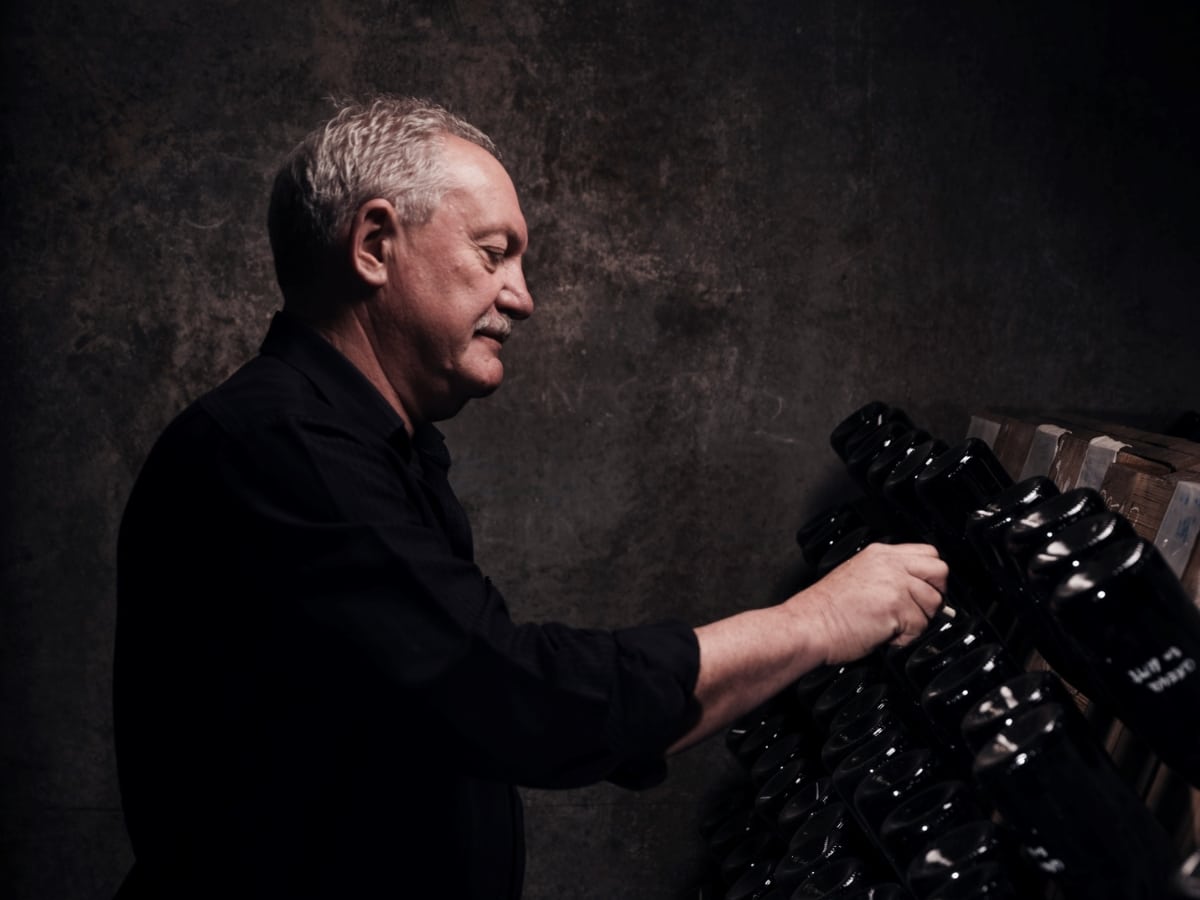





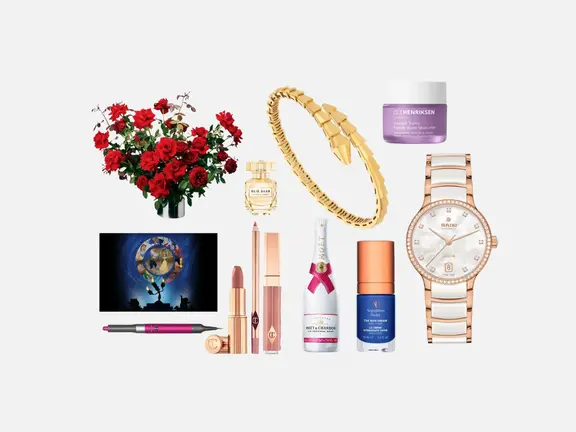










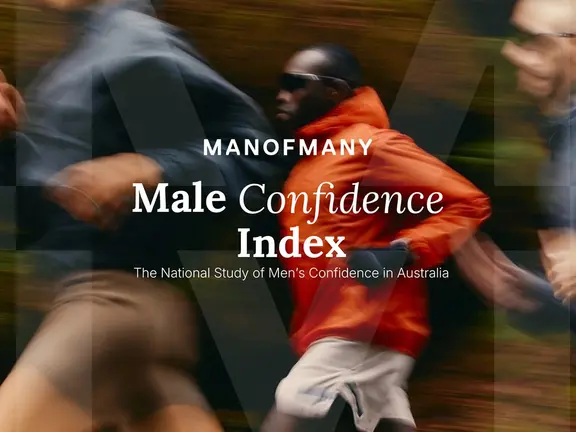















Comments
We love hearing from you. or to leave a comment.